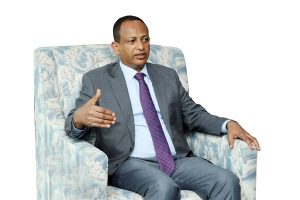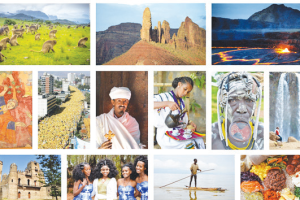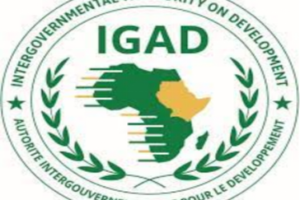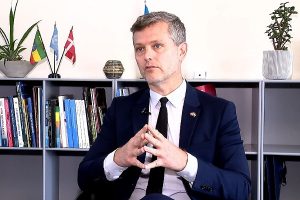
The temporary misunderstanding between Egypt and Ethiopia on GERD talks should not come as a surprise because diplomacy on such a big issue is bound from the outset to be complex, painstaking and requiring great patience and farsightedness. Most of all, the spirit of African Unity and bilateral as well as multilateral interests are expected to prevail in a balanced way leading to the satisfaction all those involved in the negotiations. However, there may be hiccups along the way.
Diplomacy is not a track and field event where you run from point A to point B to emerge as the winner. In fact, diplomacy, unlike athletics, does not produce winners and losers. It rather strives to make all competitors emerge as winners at the end of the day.
This is in fact what the tortuous, stop-and-go nature of the negotiations on GERD tells us so far. The process has seen many ups and downs, sometimes looking as if it had reached a point of breakdown or a tipping point beyond which there could be no return to the tables. Yet, Ethio-Egyptian diplomacy on GERD has proved more tenacious, more flexible and more enduring than the short-term prediction of doomsayers of all hues and forms.
There were even dark forecasts circulating on the notorious social media predicting a doomsday scenario for the two sisterly African countries whose ultimate aim is to serve the interests of their two countries and that of Africa in such a way as to help both emerge as winners in the marathon diplomacy that is inevitably accompanying the GERD project.
In fact, the two countries have already overcome many diplomatic hurdles to reach the present stage of negotiations. At the beginning of the GERD project, some Egyptian diplomats and politicians had found it difficult to reconcile themselves with the very idea of Ethiopia building the biggest dam in Africa on the Nile to tackle its age-old poverty and underdevelopment.
At that stage, Egypt’s position or its so-called historical claims on the Nile waters as articulated by its wayward diplomats looked sacrosanct and hence untouchable. But these claims soon proved unattainable and Egyptian leaders chose to reconcile themselves with the reality on the ground by leaving behind the anachronistic and unjust treaty that gave one country a disproportional claim over what is a common resource.
Egypt at that time was in the throes of a popular revolt and the regime was unstable both in its domestic and foreign policy for some time. When the late Mohamed Mursi came to power on the wave of the post-revolution chaos in Egypt, his tendency was to continue the old line of “not a drop of water from Egypt’s share of the Nile” kind of rhetoric aimed at appeasing domestic opinion and winning over followers for his government.
This line too soon proved unrealistic and did not reflect contemporary issues and realities as far as the Nile was concerned. Most of all, it violated Ethiopia’s legitimate development rights and claims over the river leading to a temporary deadlock.
The accession of Abdel Fatah Al Sisi to power finally helped untie the diplomatic knot over the Nile and release the goodwill, and the potentials of the African spirit of mutually beneficial negotiations. A new and more feasible approach appeared on the horizon of Egyptian diplomacy with Al Sisi’s pragmatic approach. Since then, the path of negotiations had been relatively smoother despite the inevitable shocks and tremors along the way.
Al Sisi’s government has since shown a better grasp of the Nile issue and the objectives of the GERD project. There had been a series of diplomatic exchanges not only between the two countries but also with Sudan which is an immediate neighbor for the two countries and a potential beneficiary of the GERD project. Besides official diplomacy, the two countries were also engaged in fruitful public diplomacy and reached out to one another in friendly gestures.
However, in an unexpected twist, Egyptian diplomats last week came up with a new and what looks a bizarre proposal during the latest negotiations. As one media source reported on the latest negotiations that were temporarily halted last week, Egypt, Ethiopia and Sudan had earlier reached an agreement to set up a scientific study group to consult on the filling of the dam. Yet, no progress was reported since then.
This was also confirmed by Egyptian foreign Minister Sameh Shoukry who said that the talks over GERD had stopped for more than a year before restarting in Cairo last week. The long running talks focused on two main issues; that of the filling time of the Dam and its future operations.
The Egyptian fear, although understandable, was nevertheless baseless if not exaggerated. Ethiopia has repeatedly asserted that the Dam could not reduce Egypt’s share of the Nile in any significant way, let alone threaten its national interest. It has given repeated assurances that the Dam was only meant to serve the development needs of all the riparian countries in a way that will be fair and balanced by taking into account the legitimate interests of all the countries involved.
As Foreign Minister Shoukry said, Egypt understands and respects the legitimate claim and right of Ethiopia to use its natural resources to throw away the shackles of famine and poverty that had been affecting many generations in the past and create a better future for coming generations. Ethiopia is pursuing this objective without affecting Egypt’s rights and interests. It has also produced evidence that supports these concerns despite the fact that Egyptian position on this issue might sometimes be inconsistent, wavering and suspicious.
The hard fact is that whether Egypt and Ethiopia agree or not on the filling and operations of the Dam, the GERD project is moving full steam ahead and construction has entered its advanced phase. What the Egyptian side is expected to do is to see the reality on the ground and find ways of articulating its interests in a way that will protect is fundamental and legitimate interests and not indulge in procrastination and double-talk.
The Ethiopian position was articulated by the spokesman of the Ministry of Foreign Affairs (MoFA) Nebiat Getachew who said that Egypt’s proposal on the GERD was an affront to Ethiopia’s sovereignty and stands in sharp contrast to Ethiopia’s national interest and puts its national sovereignty under question. At a press conference hastily organized at the MOFA last week, Nebiat reaffirmed Ethiopia’s position by saying that the use of cross-border water resources should be based on common use, fairness, responsible use, cooperation and avoidance of significant damage to the other users.
He was quoted as saying that Ethiopia will strengthen its use of the Nile water to fulfill the needs of its current and upcoming generations based on the principles of fairness and reasonable use, and respect to international law.
Egypt therefore needs to reconsider its latest arguments on the real motives of the GERD project because the proposal tabled at the recent talk overlooks Ethiopia’s actual and future rights of use of the waters of the Nile and limits the country’s plan to develop the river. Moreover, as Nebiat emphasized, Egypt’s proposal would further complicate the water filling process of the GERD. Ethiopia knows how to go ahead with its grand project and needs no interference from outside as to how it has to start and finish its development projects. This is also true that Ethiopia too has so far refrained from interference into the internal affairs of Egypt.
Despite the latest diplomatic hiccup, talks between Egypt and Ethiopia are expected to resume soon simply because the two countries are bound by history and destiny to live together and work together in the interests of the two countries, those of the riparian states and Africa in general. That is why Ethiopian MOFA spokesperson Nebiat Getachew was quoted as saying last week that GERD is a Pan-African project, asserting once again that the project is only targeting famine and poverty and as such it is a game changer for the country.
It is also good to realize that the two sides are willing to resume the talks because they cannot afford to discard all the trust and cooperation built over the last seven years of arduous diplomatic efforts and a lot of goodwill on both sides. The resumption of the talks is therefore a must for both of them.
The same spirit apparently prevailed on the Egyptian side when its foreign minister said that his country was open to further talks. The work of the scientific study group set up by Egypt, Ethiopia and Sudan on the filling of the Dam needs to be made official and sticking points need to be addressed with patience and farsightedness, free from emotional or impulsive statements that may temporarily disrupt any progress on the issue.
The Ethiopian Herald Sunday Edition 29 September 2019
BY MULUGETA GUDETA





